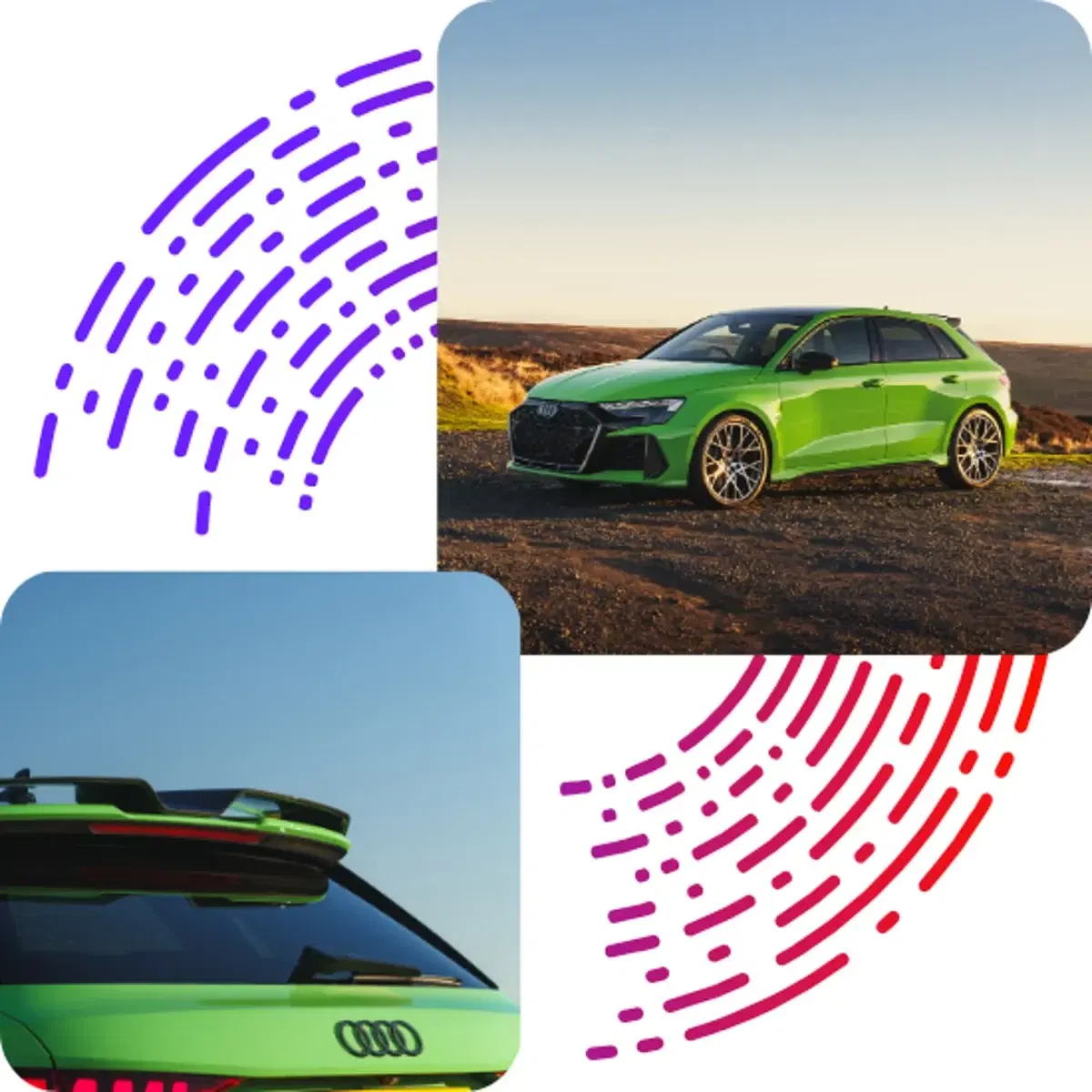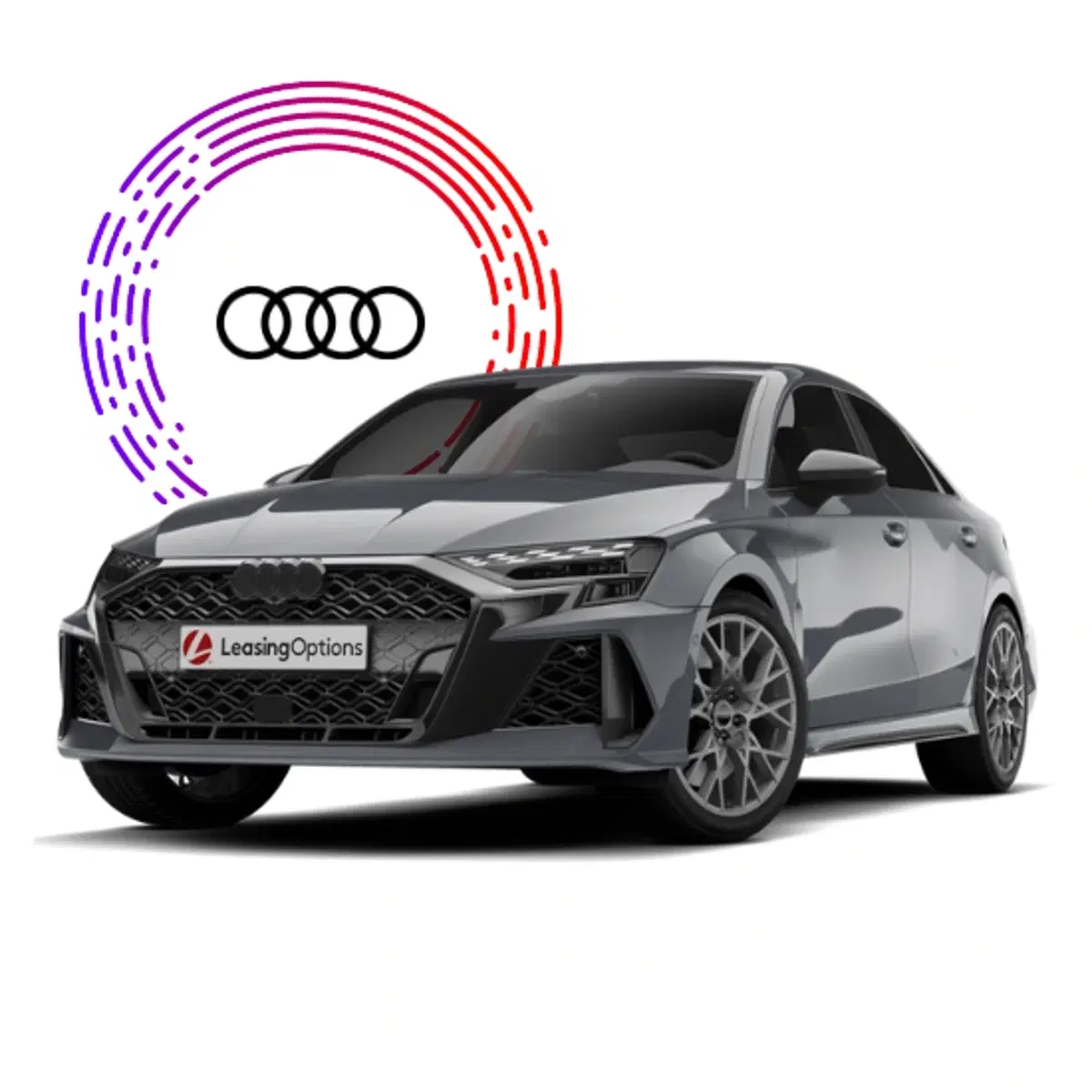
Audi Leasing
All this is available for less with a Audi lease deal from Leasing Options with our price match promise. Browse the latest deals below or speak to our expert Audi leasing team to find your perfect vehicle.

Inc. VAT

Inc. VAT

Inc. VAT

Inc. VAT

Inc. VAT

Inc. VAT

Inc. VAT

Inc. VAT

Inc. VAT

Inc. VAT

Inc. VAT

Inc. VAT
What style Audi are you looking to drive?
Our best Audi deals
Discover Audi lease deals
A German automotive brand, Audi is known for producing a lineup of luxury cars with sleek designs and the most advanced technology for a refined performance on the road. Over the years, the brand has developed its own Quattro all-wheel drive system and virtual cockpits for driver convenience and branched out into electrifying some of their classic models under the e-tron badge.
Wondering whether Audi leasing is right for you? Well, with advanced safety tech, refined interiors, and a strong reputation for reliability, leasing an Audi lets you enjoy all the benefits of a premium brand at a more affordable monthly cost. You’ll also find a broad range of vehicles, meaning you can find the perfect lease car for any requirement.
What’s more, like many luxury manufacturers, Audi has branched out into electrifying their lineup so drivers can enjoy the powerful driving experience that comes with Audi without the emissions. There’s an Audi car leasing deal to suit every lifestyle.
Our complete guide to car leasing
If you’re looking for more insights, our complete guide to car leasing explains everything you’ll need to know. From understanding monthly payments to the differences between personal and business leases, we’ve covered all the basics.
Discover Audi Business Leasing
Audi business car leasing allows you to drive a luxury vehicle while keeping your monthly costs predictable. Whether you’re a limited company or part of a larger fleet, business leasing gives you access to the latest petrol, diesel, hybrid, and electric models, all with fixed monthly payments.

Family Audi lease deals
An Audi would make a great luxury family car, with plenty of space for everything that comes with travelling with the little ones or extended family members.
The Audi A3 would make a great family car, with the option of petrol, diesel and hybrid engines to suit your preferences. The A3 is well-equipped and well-made, with loads of safety features, including automatic emergency braking and a distance sensor for your peace of mind. It has a 5-star NCAP rating, easy-to-reach ISOFIX points, and plenty of head and legroom in the back for everyone to be comfortable.

Discover electric Audi lease deals
Looking for an Audi electric car lease? Audi models stand out as some of the most innovative on the market, boasting all the high-tech features synonymous with the brand.
With an all-electric range of 321 miles and the ability to accelerate from 0-60mph in as little as 5.4 seconds, the Audi Q4 e-tron is stylish and practical. If you’re looking for something a little more sporty, the Audi E-Tron GT looks incredibly futuristic and sleek. Or, the Audi A6 e-tron is another great addition to the all-electric lineup, with a sporty silhouette and an unmistakable look.

Benefits of Leasing
Wondering why you should lease rather than other types of finance? It’s simple, really. Here are a few of the benefits:
- Access to the latest models at an affordable price
- Change your car every few years
- Insurance and maintenance-included options available
- All of your motoring costs in one place
- Experience the latest in-car technology
- No depreciation or selling worries at the end of your lease term

Why lease with Leasing Options?
Simple, we make leasing easy, honest and affordable for our customers.
We're award winning with over 35 years' in the industry and we're one of the UK's most trusted leasing brokers, rated Excellent on Trustpilot with a 4.9-star rating from over 20,000 reviews.
With Leasing Options, you get jargon-free advice, tailored quotes, and ongoing support from a team that genuinely wants to get you the right deal, not just any deal and we back that up with our Price Match Promise (if you find a cheaper price elsewhere we will match it or give you £50).
We also make managing your motoring costs effortless. Not only will your vehicle will be delivered to your door for free, you can choose to include maintenance and insurance in your monthly payment (which already covers your road tax), and even add an EV charger with an great rate, keeping everything in one simple, affordable package.

Audi customer reviews
Overall Average Rating
Based on:
9 Verified Customer Reviews
5 out of 5 Average Rating

